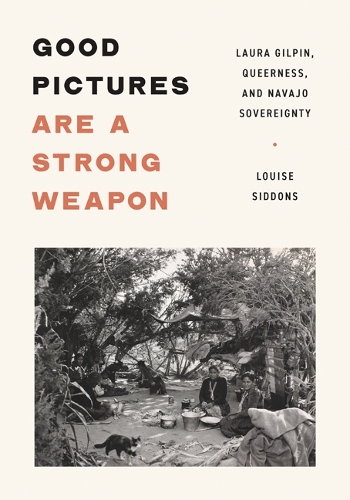
Good Pictures Are a Strong Weapon: Laura Gilpin, Queerness, and Navajo Sovereignty
(Paperback)
Available Formats
Publishing Details
Good Pictures Are a Strong Weapon: Laura Gilpin, Queerness, and Navajo Sovereignty
By (Author) Louise Siddons
University of Minnesota Press
University of Minnesota Press
19th March 2025
United States
Classifications
Professional and Scholarly
Non Fiction
LGBTQIA+ Studies / topics
Indigenous peoples / Indigeneity
Social and cultural history
979.10049726
Physical Properties
Paperback
320
Width 178mm, Height 254mm, Spine 17mm
567g
Description
What are the limits of political solidarity, and how can visual culture contribute to social change
A fundamental dilemma exists in documentary photography: can white artists successfully portray Indigenous lives and communities in a manner that neither appropriates nor romanticizes them With an attentive and sensitive eye, Louise Siddons examines lesbian photographer Laura Gilpins classic 1968 book The Enduring Navaho to illuminate the intersectional politics of photography, Navajo sovereignty, and queerness over the course of the twentieth century.
Gilpin was a New Yorktrained fine arts photographer who started working with Navajo people when her partner accepted a job as a nurse in Arizona. She spent more than three decades documenting Navajo life and creating her book in collaboration with Navajo friends and colleagues. Framing her lesbian identity and her long relationship with the Navajo people around questions of allyship, Good Pictures Are a Strong Weapon addresses the long and problematic history of white photographers capturing images of Native life. Simultaneously, Siddons uses Gilpins work to explore the limitations of white advocacy in a political moment that emphasized the need for Indigenous visibility and voices.
Good Pictures Are a Strong Weapon introduces contemporary Din (Navajo) artists as interlocutors, critics, and activists whose work embodies and extends the cultural sovereignty politics of earlier generations and makes visible the queerness often left implicit in Gilpins photographs. Siddons puts their work in conversation with Gilpins, taking up her mandate to viewers and readers of The Enduring Navajo to address Navajo aesthetics, traditions, politics, and people on their own terms.
Retail e-book files for this title are screen-reader friendly with images accompanied by short alt text and/or extended descriptions.
Author Bio
Louise Siddons is professor of visual politics and Head of the Department of Art and Media Technology at Winchester School of Art, University of Southampton. She is author of Centering Modernism: J. Jay McVicker and Postwar American Art.
